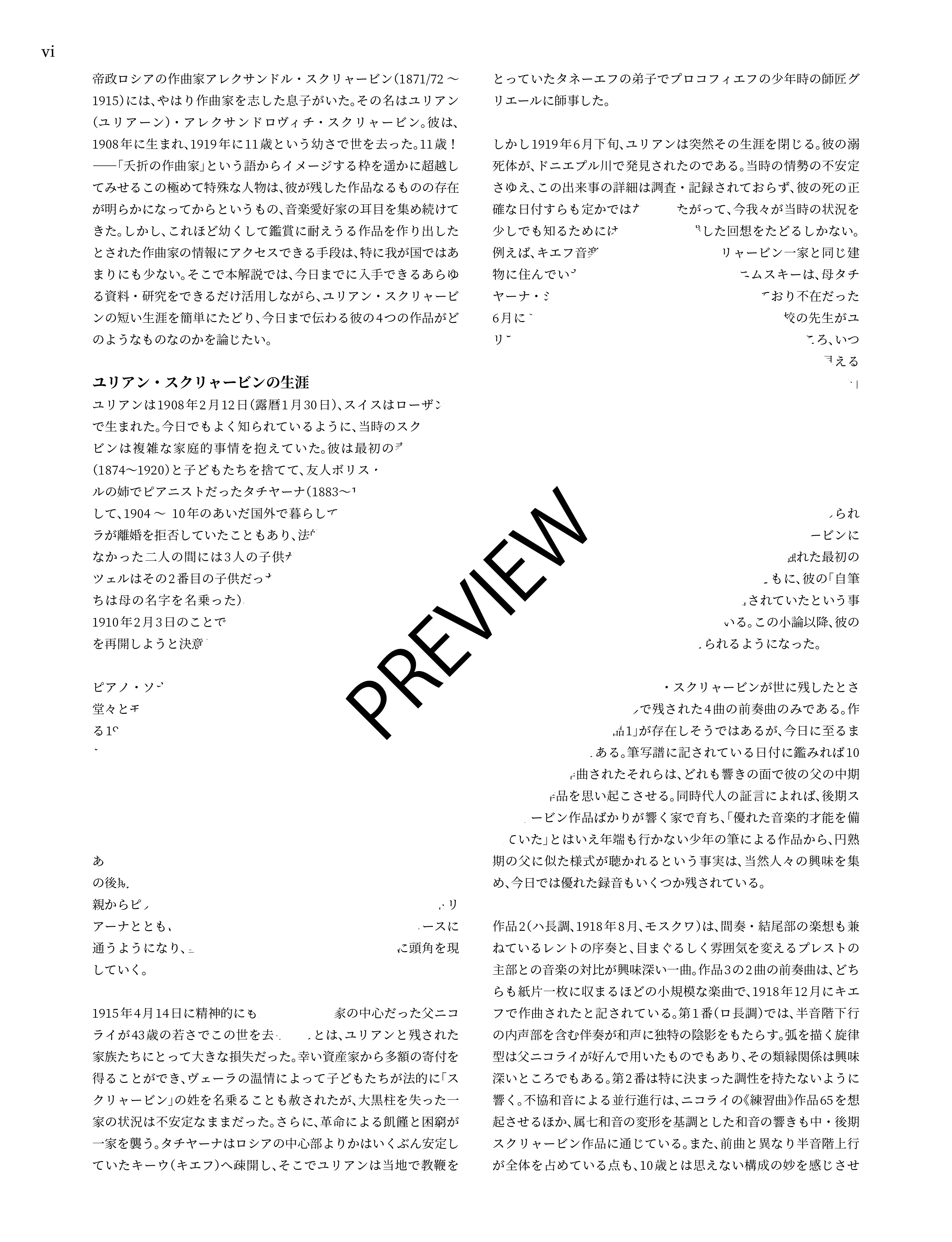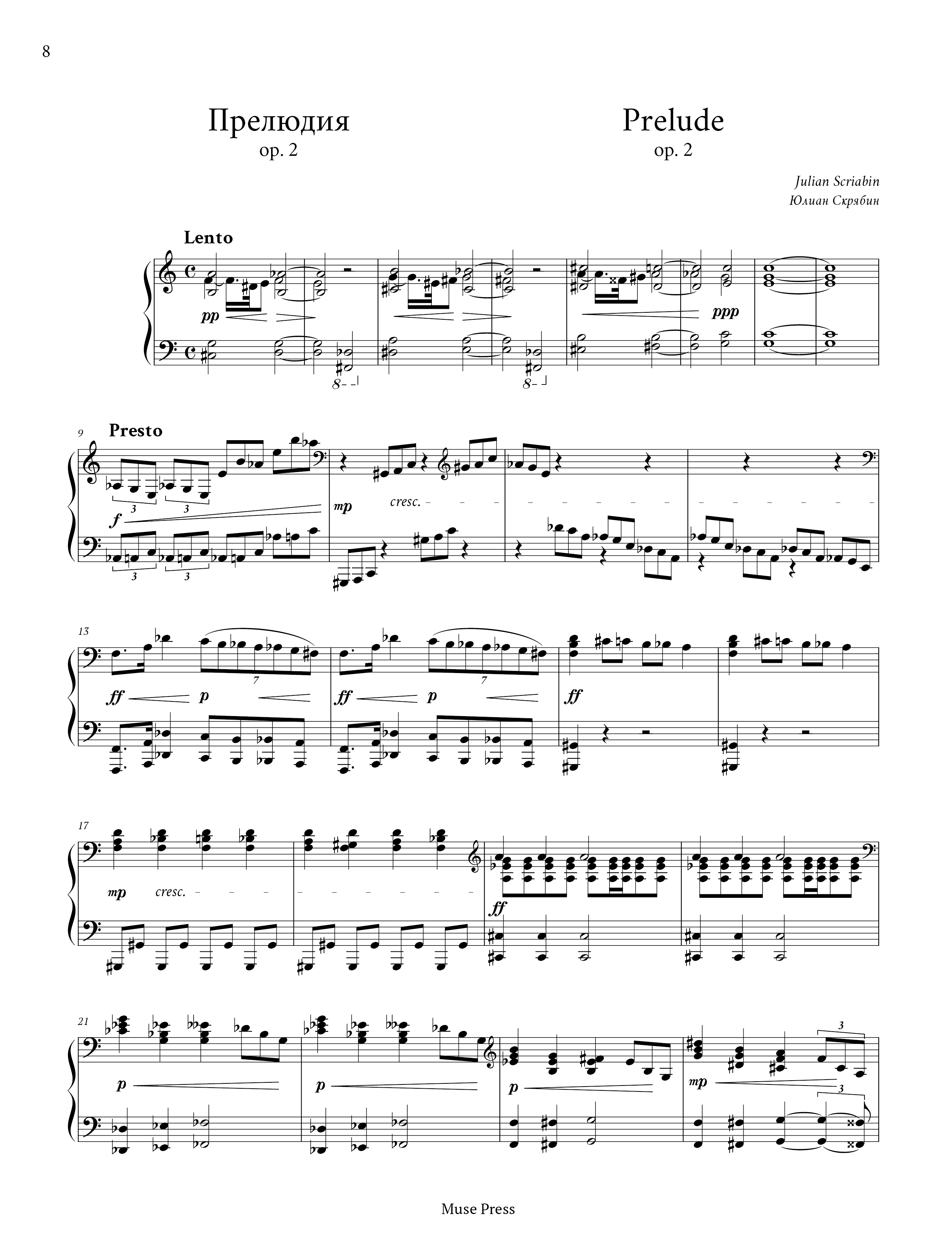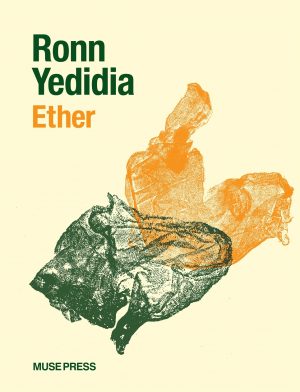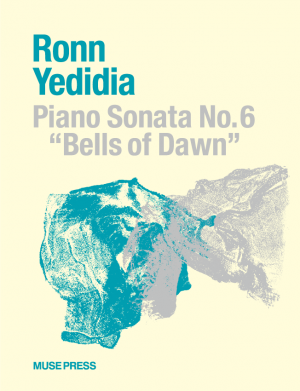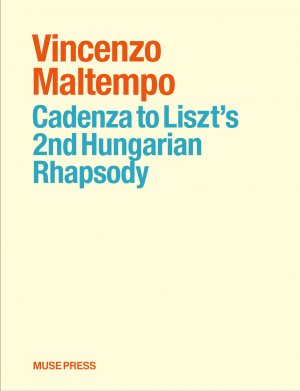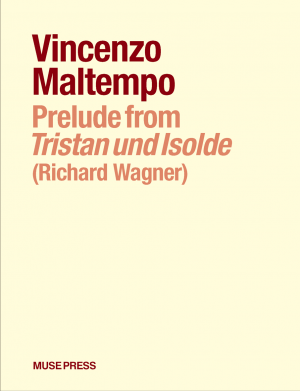Description
Russian composer Alexander Scriabin had a son who aspired to be a composer. His name was Julian Scriabin, who was born in 1908 and died in 1919 at the young age of 11. His works are reminiscent of those of his father’s middle to late years, and his passing is greatly regretted. For this publication, musicologist Akihisa Yamamoto has written a commentary on Julian and his works.
Contents
Foreword by Akihisa Yamamoto
Julian Scriabin: Prelude ,Op. 2
Julian Scriabin: Prelude, Op. 3 No. 1
Julian Scriabin: Prelude, Op. 3 No. 2
Julian Scriabin: Prelude
Julian Scriabin
Educated professionally from an early age, Julian Scriabin distinguished himself in piano performance and composition, studying under Reinhold Moritzevich Glière. However, in late June 1919, his life came to an end when Julian was found drowned in the Dnieper River. The details of his drowned body and the exact date of his death are still unknown.。
Akihisa Yamamoto
Musicologist. Specializes in Russian art music of the late 19th – early 20th century. Graduated from the Department of Musicology, Faculty of Music, Tokyo University of the Arts. Received the Ataka Prize while still a student, and the Acanthus Music Prize and the Doseikai Prize upon graduation. He also completed a research practice at the Department of Russian Music History at the Moscow Conservatory of Music in 2016. He is currently enrolled in the doctoral program of the Graduate School of Music at Tokyo University of the Arts and the Department of Music History at The State Institute for Art Studies of the Ministry of Culture of the Russian Federation. From 2017-2020, he was a Fellow of the Japan Society for the Promotion of Science (DC1), and a Rohm Music Foundation Scholar in 2020 and 2021. His most recent paper is “Music Enlightenment of the Proletkult: Ideological Programs and Daily Practices” (2022). He has translated Tchaikovsky’s “Guide to the Practical Study of Harmony” (2022, Ongaku no Tomo Sha Corp.).

